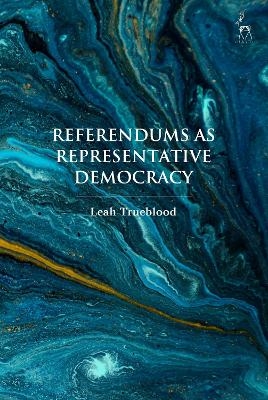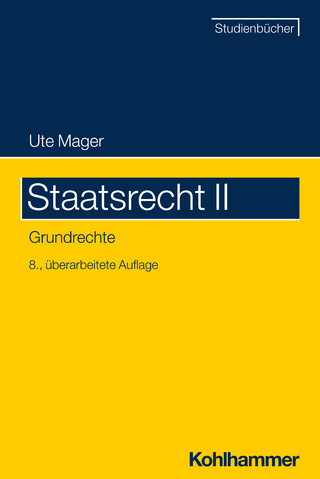
Referendums as Representative Democracy
Seiten
2024
Hart Publishing (Verlag)
978-1-5099-4080-6 (ISBN)
Hart Publishing (Verlag)
978-1-5099-4080-6 (ISBN)
In referendums on fundamental constitutional issues, do the people come together to make decisions instead of representatives? This book argues no. It offers an alternative theory of referendums whereby they are one of many ordinary ways that voters give direction to their representatives. In this way, the book argues that referendums are better understood as exercises in representative democracy.
The book challenges the current treatment of referendums in processes of constitutional change both in the UK and around the world. It argues that referendums have been used under the banner of popular sovereignty in a way that undermines representative institutions. This book makes the case for the use of referendums stronger by showing how they can support, rather than undermine, institutions of representative democracy.
Understanding referendums as exercises in representative democracy has broader implications for constitutional democracy as well. Rather than see the power to constitute constitutions as something that happens occasionally in exceptional moments through referendums, this book argues instead that voters constantly have the power to constitute and reconstitute their constitutions.
The book challenges the current treatment of referendums in processes of constitutional change both in the UK and around the world. It argues that referendums have been used under the banner of popular sovereignty in a way that undermines representative institutions. This book makes the case for the use of referendums stronger by showing how they can support, rather than undermine, institutions of representative democracy.
Understanding referendums as exercises in representative democracy has broader implications for constitutional democracy as well. Rather than see the power to constitute constitutions as something that happens occasionally in exceptional moments through referendums, this book argues instead that voters constantly have the power to constitute and reconstitute their constitutions.
Leah Trueblood is Career Development Fellow in Public Law at Worcester College, Oxford, UK.
1. Introduction
2. The People or Politicians? A False Choice
3. Why Referendum on Fundamental Constitutional Matters Cannot be Directly Democratic
4. Referendums as Representative Democracy
5. Principles for the Use of Referendums
6. Three Case Studies
7. Conclusion
| Erscheinungsdatum | 03.04.2024 |
|---|---|
| Verlagsort | Oxford |
| Sprache | englisch |
| Maße | 156 x 234 mm |
| Themenwelt | Recht / Steuern ► Allgemeines / Lexika |
| Recht / Steuern ► EU / Internationales Recht | |
| Recht / Steuern ► Öffentliches Recht ► Verfassungsrecht | |
| Sozialwissenschaften ► Politik / Verwaltung | |
| ISBN-10 | 1-5099-4080-4 / 1509940804 |
| ISBN-13 | 978-1-5099-4080-6 / 9781509940806 |
| Zustand | Neuware |
| Informationen gemäß Produktsicherheitsverordnung (GPSR) | |
| Haben Sie eine Frage zum Produkt? |
Mehr entdecken
aus dem Bereich
aus dem Bereich


